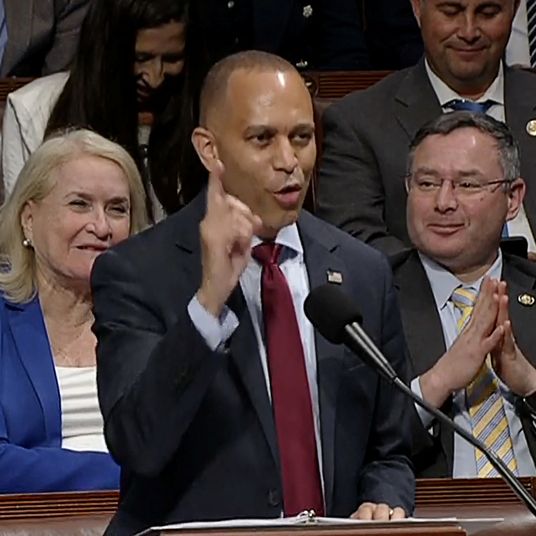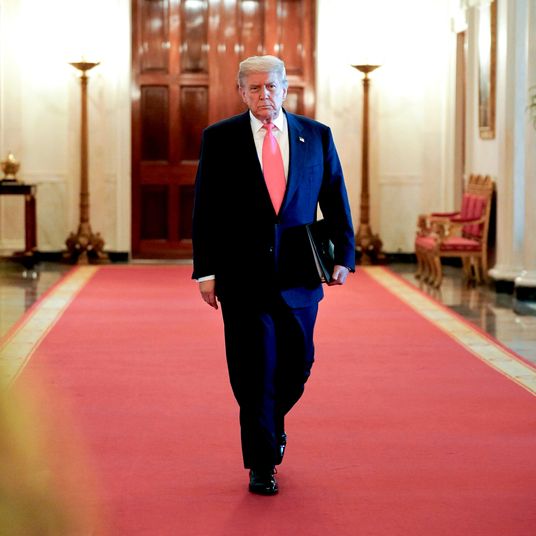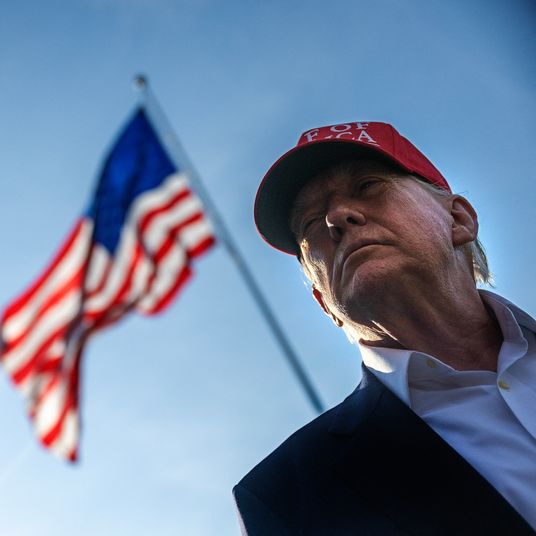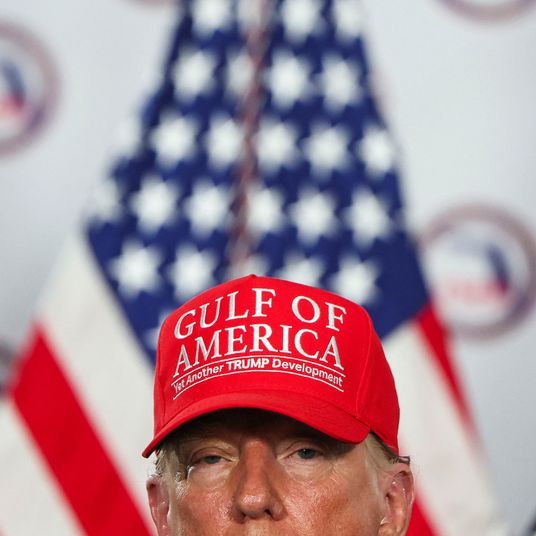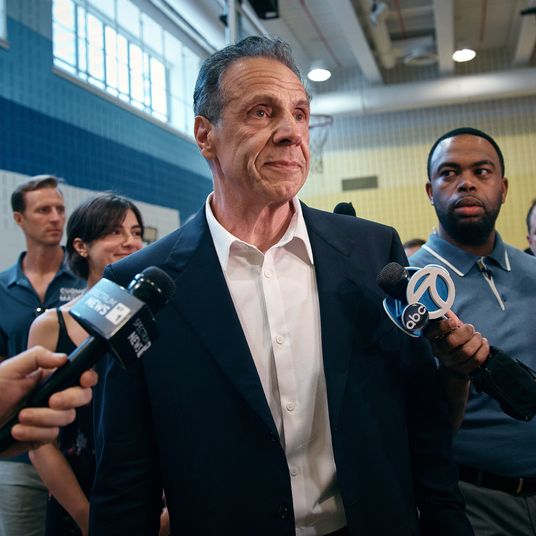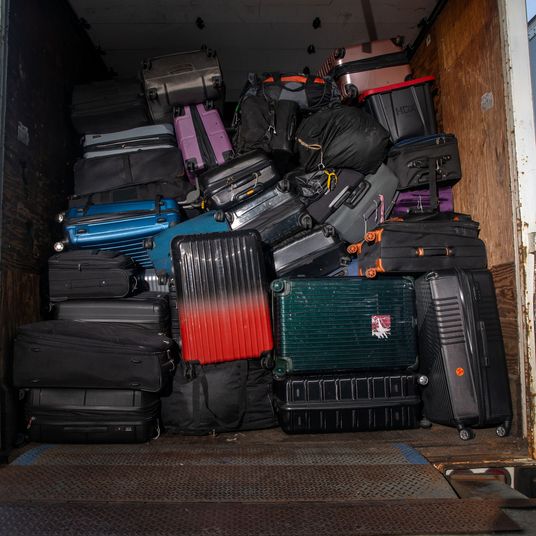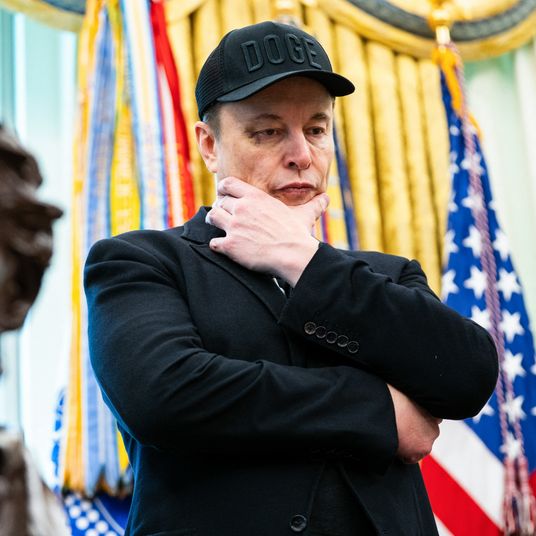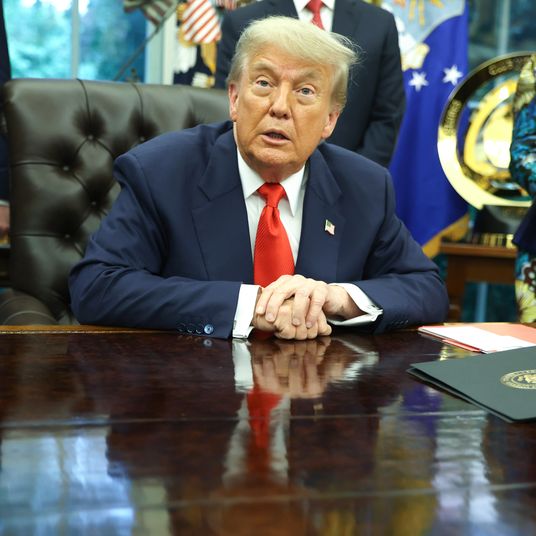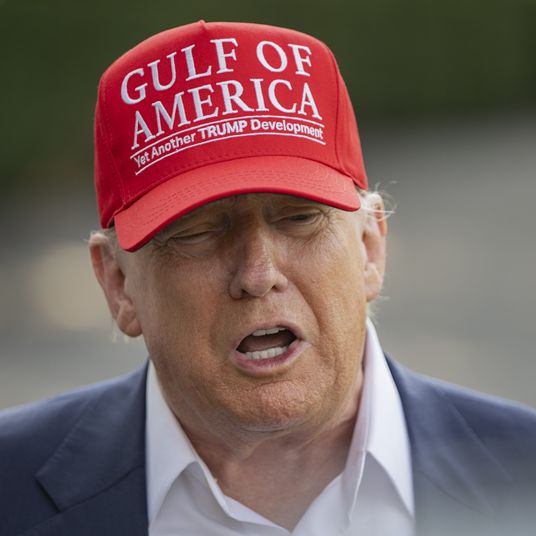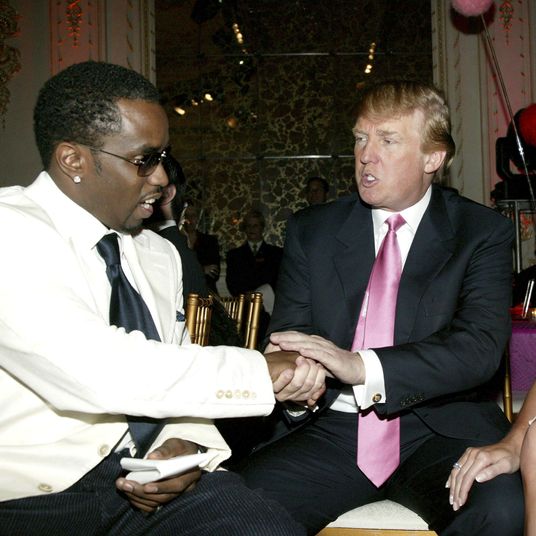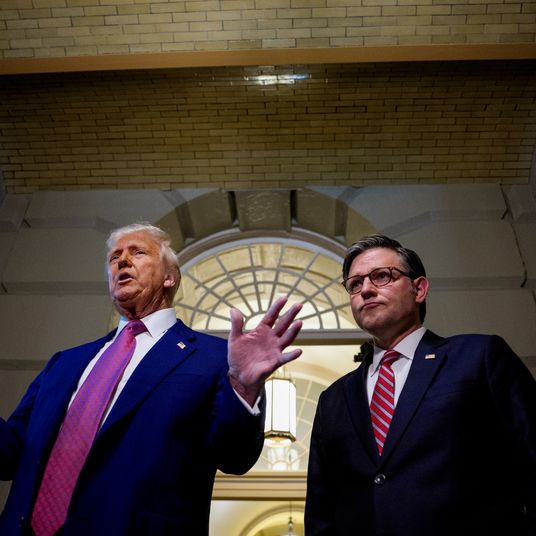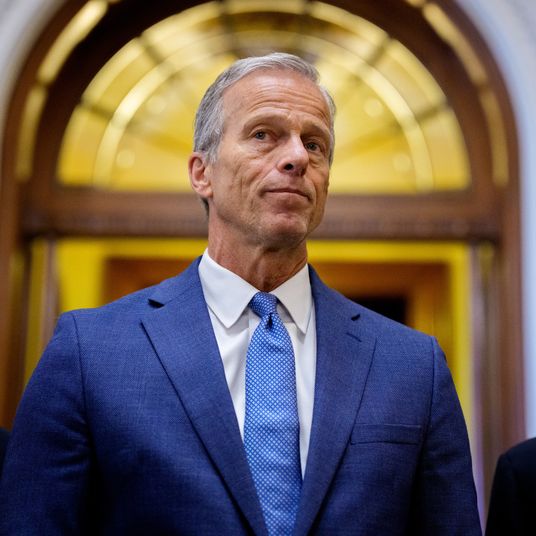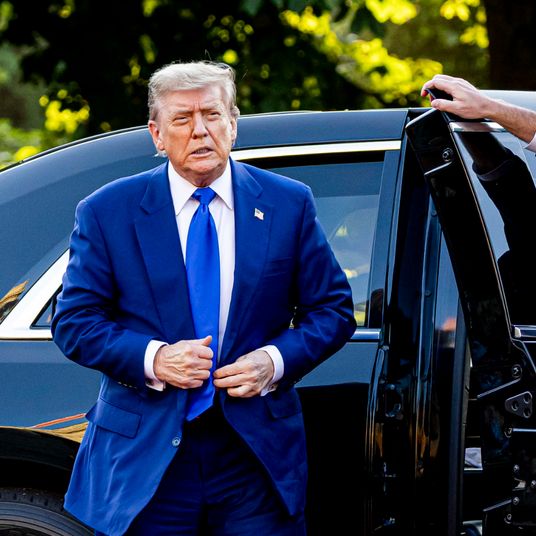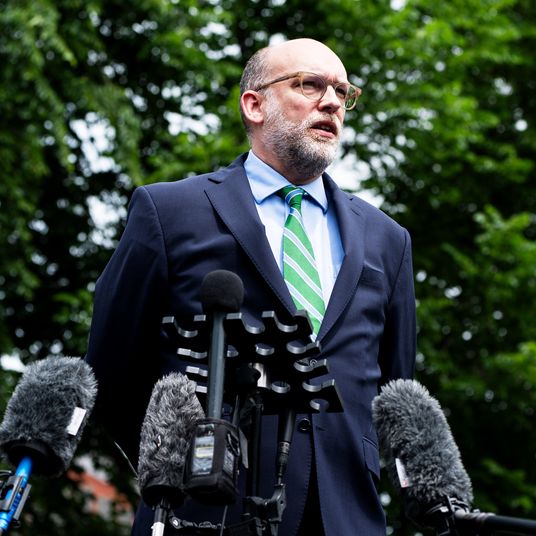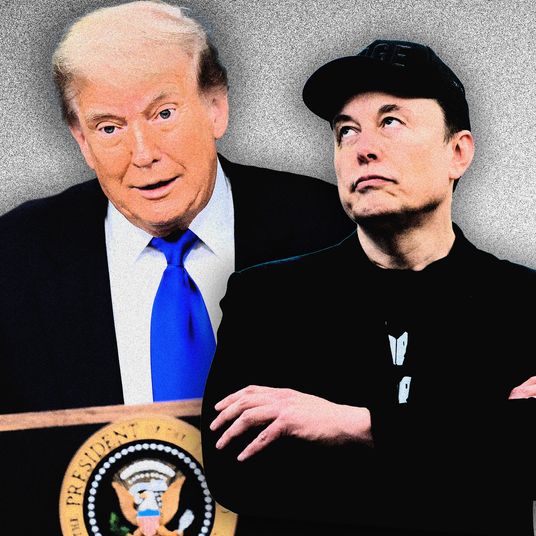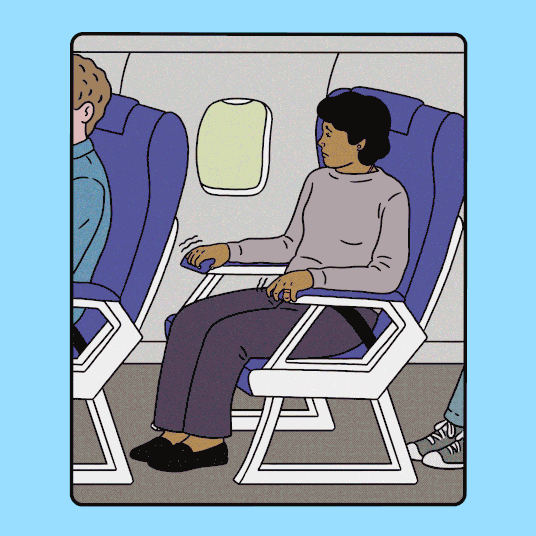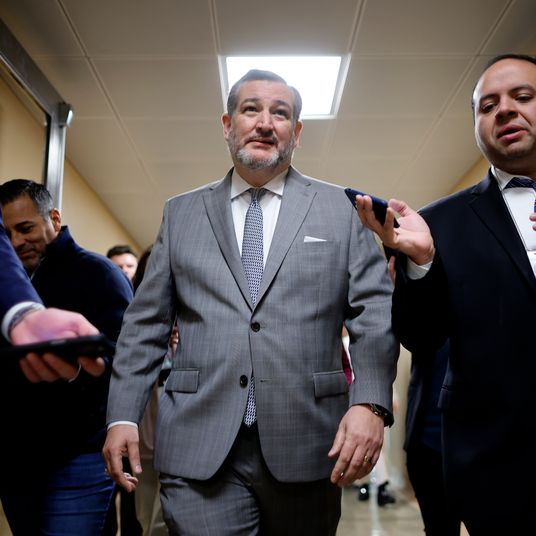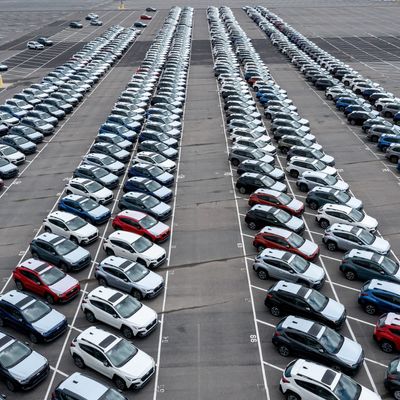
On Wednesday, President Donald Trump announced the latest in his ongoing volley of tariffs, levying a 25 percent tax on all automobiles and car parts imported into the United States. “I think our automobile industry will flourish like it hasn’t before,” he told reporters in the Oval Office. Though the president’s stated goal is to boost the American auto industry, the average American consumer will probably foot the bill with car prices likely to rise significantly as a result of the tariffs. With the new tax expected to go into effect early next month, here’s a quick rundown of the key questions and answers.
.
What will the auto tariffs apply to?
Per Trump, his administration will be enacting a 25 percent tariff on all cars and automobile parts that are imported into the country. According to a White House fact sheet, the new tax will apply to passenger vehicles like sedans, cargo vans, crossovers, SUVs, minivans, and light trucks, as well as pertinent vehicle parts like “engines, transmissions, powertrain parts, and electrical components.”
However, auto parts covered by the United States–Mexico–Canada Agreement (USMCA) won’t be subject to tariffs until the Commerce secretary “establishes a process to apply tariffs to their non-U.S. content.”
The administration has cited the country’s increased reliance on foreign cars, citing a statistic that half of the 16 million cars, light trucks, and SUVs purchased by Americans in 2024 were imports.
.
Why is Trump enacting the tariffs?
On Wednesday, Trump said that the tariffs will revitalize the U.S. auto industry, generate $100 billion in new revenue, and drive down new car prices. He also declared that April 2, when the tariffs will go into effect, would be “Liberation Day” for the American auto industry.
“You’re going to see prices going down, but going to go down specifically because they’re going to buy what we’re doing, incentivizing companies to — and even countries — come into America,” Trump also said.
.
When do the auto tariffs go into effect?
Per Trump’s announcement, the auto tariffs are slated to go into effect on April 2 (with collection beginning April 3), and the auto-part tariffs will go into effect no later than May 3.
.
But will they actually go into effect? Hasn’t Trump changed his tune before?
Though the president has levied some tariffs since taking office, there is a chance he could delay implementation of the auto ones. Earlier this month, Trump delayed a series of tariffs on Canadian and Mexican goods covered by the USMCA trade agreement for 30 days following discussions with the nations’ leaders and a tumultuous stock-market response.
However, there also signs that the Trump administration won’t back down again. It is already reveling in its move and signal-boosting the United Auto Workers’ endorsement of the tariffs, which was a notable win for the president as the prominent union previously backed all three of Trump’s Democratic challengers over him. “We applaud the Trump administration for stepping up to end the free trade disaster that has devastated working class communities for decades. Ending the race to the bottom in the auto industry starts with fixing our broken trade deals, and the Trump administration has made history with today’s actions,” UAW president Shawn Fain said in a statement.
.
Will the tariffs drive up new car prices?
Experts predict that consumers will encounter heftier price tags as a result of the auto tariffs. The research firm Cox Automotive estimates that a vehicle assembled in Canada or Mexico could see an additional $6,000 added to its sale price, per the New York Times, and that it would only take a few weeks for the tariffs to begin disrupting vehicle production.
The exact financial hit that Americans can expect will likely depend on whether manufacturers will choose to absorb the tax or pass on those new added costs to the customer. CNN cited the Anderson Economic Group, a Michigan-based consulting firm, which found that tariffs could add additional manufacturing costs ranging from $3,500 to $12,000 depending on the car model.
AutoForecase Solutions analyst Sam Fiorani told the Associated Press that the impact on prices will happen fast and then get worse: “Starting almost immediately, consumers will see their already expensive new vehicles cost hundreds to thousands more, and those prices will escalate even more when the supplies of many key vehicles dwindle.”
Earlier this month during a call with automaker CEOs, Trump warned the executives not to raise their prices because of tariffs. The Wall Street Journal reports:
Trump told the executives that the White House would look unfavorably on such a move, leaving some of them rattled and worried they would face punishment if they increased prices, people with knowledge of the call said. Instead, Trump said, they should be grateful for his elimination of what he called former President Joe Biden’s electric-vehicle mandate, which involved subsidies and emissions requirements to encourage electric-car production. He made a lengthy pitch for how they would actually benefit from tariffs, two people on the call said, adding that he was bringing manufacturing back to the U.S. and was better for their industry than previous presidents.
The tariffs would be “great,” Trump said, according to one of the people.
.
Why did Trump warn automakers not to raise car prices?
Because people might blame Trump if something he did caused prices to go up.
.
How are the markets responding?
With the exception of Tesla, major auto-industry stocks fell across the board on Thursday, per the New York Times:
The stocks of major Detroit carmakers, which build some of their vehicles in Canada and Mexico, were rattled on Wall Street. Shares in General Motors, which imports many of its best-selling cars and trucks from Mexico, tumbled more than 7 percent. Ford, which is less reliant on imported cars, fell almost 4 percent, extending its losses from earlier in the day, while Stellantis’s stock — the parent of Chrysler, Fiat, Jeep, Peugeot and Ram — was more than 1 percent lower for the day.
Among the hardest hit shares on Thursday were those of carmakers based in Germany, Japan and South Korea, which sell many of their cars in the United States and rely on complex supply chains that cross borders, including from production sites in Mexico and Canada.
.
Will Tesla be exempt from Trump’s auto tariffs?
President Trump and his administration have repeatedly tried to bolster DOGE leader Elon Musk’s struggling EV company, but so far there is no indication that Tesla will be exempt from the auto tariffs. Musk himself insisted on X that the tariffs would have a “significant” impact on Tesla.
However, it’s also worth noting that most market analysts are predicting that compared with other automakers, Tesla will likely feel the least impact from the tariffs, since more of its production is done domestically than other manufacturers.
.
How long will the tariffs last?
“This will be permanent,” Trump said Wednesday, but Trump says a lot of things — so it’s not clear how long the auto tariffs will remain in place.
.
How are other countries responding?
The vast majority of U.S. auto imports come from Mexico, Japan, South Korea, Canada, and Germany. So far, all have expressed their alarm over the new tariffs, but only some are threatening payback.
Mexico
No country exports more automobiles to the U.S. than Mexico, and so far, Mexican government officials appear to be avoiding any retaliatory rhetoric. Mexican economy minister Marcelo Ebrard said Thursday that the country was continuing to negotiate with the U.S.: “If they are going to change the system, if we are going to a system of such high tariffs, what we have to seek is a preferential treatment for Mexico in a way that we have conditions that protect our jobs and economic activity in Mexico.”
Canada
“We will fight the U.S. tariffs with retaliatory trade actions of our own that will have maximum impact in the United States and minimum impacts here in Canada,” Canadian prime minister Mark Carney said Thursday. “We will defend our workers. We will defend our companies. We will defend our country.” On Wednesday, Carney announced a $2 billion CAD “strategic response fund” to buoy Canada’s auto industry.
Ontario premier Doug Ford is ready to retaliate, too: “We’re going to make sure that we inflict as much pain as possible to the American people without inflicting pain on the Canadian population,” he said Wednesday, adding that he will meet with other Canadian premiers about how, specifically, to respond. He has previously vowed to implement retaliatory electricity tariffs on the U.S., but says he will wait to see what happens on April 2 before deciding on that.
South Korea
South Korean industry minister Ahn Duk-geun held a meeting with auto-industry officials on Thursday and said that the government would try to negotiate with the U.S. to protect the industry, and that it was planning an emergency response to assist South Korean companies should the tariffs have an impact.
Japan
Japanese prime minister Shigeru Ishiba decried the auto tariffs on Thursday and said that Japan was considering its response. Though he insisted that “every option” was on the table, auto-industry analysts agree that Japan’s options for retaliation are more limited than other countries.
Europe
Germany and France are both calling for retaliation. On Thursday, the German economy minister Robert Habeck called for a “firm” response from the E.U. “It must be clear that we will not give in to the US. We need to show strength and self-confidence,” he said. French finance minister Eric Lombard, who has previously called Trump’s trade warring “idiotic,” said Thursday that the E.U. is preparing a list of retaliatory tariffs, which he said was the “only solution” to Trump.
This post has been updated.
